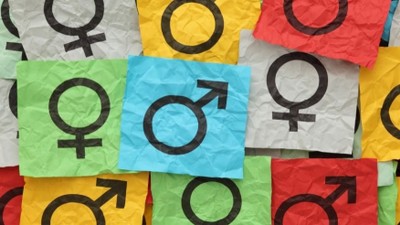
None of us have grown up in an equal society, and that makes it abstract. If we don’t know the goal it makes room for misconceptions to grow. In our work at OLIKA on gender equality and children, we have noticed that it is crucial to clarifying what the goal is. Where we’re going. Common misconceptions about what gender equality means prevent us in the process of change.
Resistance towards educators to work with gender equality are common. The resistance is coming both from parents, teachers, other grownups and from children in every age. It is often because we have a vague idea of what gender equality is.
We have seen that there are three ideas that are common:
- Gender equality means that everyone should be and act the same way. Like in the 1970:s when girls and boys should have the same clothes and play the same games.
- Gender equality means that we should do the opposite, that boys have to play with dolls and wearing a dress and the girls have to play with cars and have dungarees.
- Gender equality means that we should remove the most masculine and feminine, such as Barbie and Batman.
It is important to talk about this and clarify that this is three common mistakes. Gender equality is about to adding. Not only one way for girls and another way for boys. Gender equality gives children 100 opportunities, what the children can do and say, feelings that they are allowed to show. How they can look and also what they can dream of to become when we grow up. All of this is about our action space. Action space is simply how we can influence our own lives and also the society we live in. It is about power.
Olika is an independent publishing house that publishes books for children, and method books for adults. In Swedish, OLIKA means “different.” In what way are we different? Our stories mirror contemporary society. The everyday reality of children shows a magnificent diversity in ways of being and ways of living. By broadening the scope of children’s literature and including new ways of being, more children will be able to identify with the characters and stories, thereby having their own lived experiences validated. And at the same time read beautiful and interesting books!
Books are already a part of the pedagogical work with children. Therefore, it is an easy step to take for the pedagogues and parents. At the same time books are powerful tools in working with changes of norms and expectations of what is possible in life. They can offer the sense of not being alone in a way of living, acting or feeling – that is most important for the development of self-esteem and self-worth and how likely you are to continue on a path that feels right for you regardless if that is opposing standing norms or not.
Books can also offer a window to new possibilities of acting and being, as well as creating an expectation and knowledge and acceptance that people are different from each other.
By making sure that all of society is included in the books you read and offer children you create a sense that people are equal regardless of how you lead your life. And by working with books we also make it quite easy to start the work of changing gender stereotypes, you just must start to read new books.
The methodology we work with is simple:
Step 1 is an awareness of whom is represented and how they are portrayed in the books we read too children and the books that children read. Here we look at gender expression, friendship and differ family’s.
Step 2 is finding books that allow all children to be mirrored and books that show more opportunities than gender stereotypical books do.
Step 3 is making sure that the books are norm-critical in that they portray differences in an equal and non-problematizing way.
You can read our international catalogue here:
https://issuu.com/emilisvensson/docs/olika_publishing_2017


ottimo lavoro continuate cosi
grazie